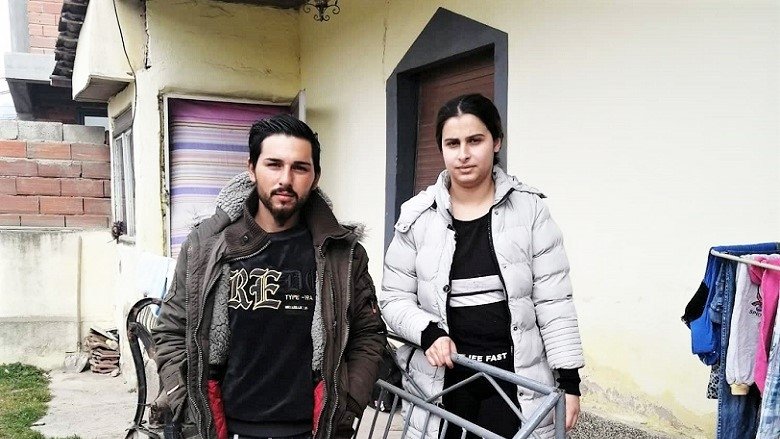Since 2019, North Macedonia has been implementing comprehensive reforms to improve the coverage, targeting, and adequacy of the country’s social assistance system in order to provide more effective support to poor and vulnerable populations. One of the key changes was the introduction of a means-tested Guaranteed Minimum Assistance (GMA) scheme that consolidated and replaced a range of means-tested social assistance programs. This was motivated by analysis carried-out by the World Bank showing that previous social assistance programs were fragmented, difficult for beneficiaries to navigate, and had little, if any, impact on alleviating poverty.
Preliminary analysis suggests the GMA reforms produced significant improvement in targeting: 53% of social assistance beneficiaries are in the poorest quintile as compared to about 44% prior to instituting the GMA. There has also been a 20% increase in the number of beneficiaries. Moreover, GMA households are eligible for a child and education allowance, which supports poor families in strengthening their human capital. As a result, under the GMA and associated allowances a family of five can now receive up to two times more than what it previously could.
The GMA during the pandemic
The GMA was also invaluable in the country’s timely response to the COVID-19 pandemic, as many of the poorest households faced job and income losses—exacerbating inequalities and risking the most vulnerable slipping into even deeper poverty.
Acting quickly in response to COVID-19, the Government of North Macedonia adopted measures to specifically protect the poor from the pandemic’s economic impacts. In early 2020, the Government amended legislation to relax eligibility criteria for the GMA, specifically reducing the income assessment criteria from a minimum of three months to only one. This crucial amendment was introduced following other significant reforms to the targeting system, such as reducing the number of required supporting documents and processing applications through a unique registry linking several key government agencies’ databases to facilitate necessary checks.
The impact of changing the GMA’s eligibility requirements in response to the COVID-19 pandemic is clear. It has led to extending the coverage of North Macedonia’s existing social assistance program by nearly 25%, allowing more than 7,210 new households to join and receive a critical lifeline.

Sara Rasimoska and her partner Orhan Raifoski were caught up in a similar situation as the country’s lockdown was implemented. As young parents in their early twenties with two young children, they faced difficulties to make ends meet. As a result of the pandemic, Sara was no longer able to take part in the care economy and Orhan lost his job as a seasonal worker. This is when they decided to apply for the GMA, support which they now receive together with a child allowance and subsidy to cover their electricity bills.
The response through the GMA stands out in the Western Balkans region as an exceptional example of a country extending the coverage of its existing social assistance program, which allowed the Government to harness investments and procedures already in place. Moreover, the speed with which the Government adopted modified GMA eligibility was striking, as was the broad communication of this change to the public. During the COVID-19 pandemic, on several occasions, the Government together with partner organizations, distributed packages with hygiene products (containing protective masks, disinfectants and personal hygiene products) to GMA recipients and other vulnerable groups.
Better prepared for future shocks
Without the consolidation of the country’s fragmented social assistance program into the GMA, North Macedonia would have likely struggled to effectively reach poor people impacted by COVID-19-related layoffs and business closures. In this respect, the introduction of the GMA and the removal of the various categorical benefits allowed for quick adaptation of the country’s social safety net when it mattered the most for people like Sead, Sara, and Orhan. Moreover, the establishment of a unified and automated beneficiary registry was another important element that improved the ability of the Government to monitor and manage existing policies and programs and increase the effectiveness and efficiency of oversight and controls.
Investing in a system in advance can seriously soften the blow felt by those most at risk of being hard-hit by adversities. The time and effort taken to create and sustain reforms over a decade have clearly paid off for North Macedonia.
But this effort has not been without challenges. Despite considerable improvements to the administrative system aimed at harmonizing and simplifying the process of applying to the GMA, the average period from applying to receiving assistance benefits was still considerably prolonged during the first year of the pandemic. These delays arose from the closure of Centers of Social Work, where applications to GMA are accepted as well as staff shortages due COVID-19 infections.
Addressing such limitations will be key to improving the country’s response to future shocks caused by an increasingly uncertain global economy and climate change. To do so, North Macedonia must continue investing in delivery systems and build upon lessons learned through the COVID-19 pandemic—and in the process can serve as a model for the rest of the region on developing effective and flexible social safety nets.

